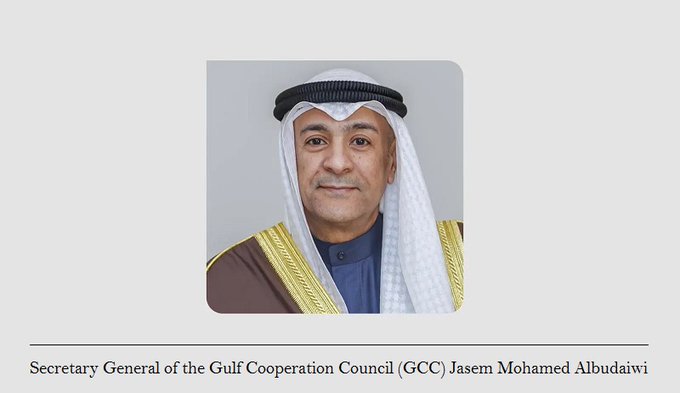
GCC Human Rights Declaration Reflects GCC Leaders' Commitment to Human Rights, Albudaiwi Says
Secretary General of the Gulf Cooperation Council (GCC) Jasem Albudaiwi stated that the GCC Human Rights Declaration reflects the dedication and commitment of GCC leaders to upholding human rights and ensuring a dignified life for their citizens.
Speaking at an event held today to commemorate the 10th anniversary of the GCC Human Rights Declaration, Secretary General Albudaiwi emphasized the member states’ adherence to the principles of the Universal Declaration of Human Rights and their efforts to build a future rooted in justice, dignity, and peace. He affirmed the GCC's steadfast commitment to fostering a more humane world, inspired by the values of Islamic Sharia and the principles enshrined in the Universal Declaration of Human Rights.
Albudaiwi highlighted that GCC member states have achieved a distinguished position in advancing human rights, grounded in the core values of their societies.
He said: "A testament to their commitment to these values is the serious pledges contained in the Kuwait Declaration from the 45th session of the Supreme Council of the GCC, summarized as follows:
First, the empowerment of women. The declaration confirmed the member states' commitment to empowering Gulf women across all sectors.
Second, the enhancement of youth roles. The declaration underscored the importance of promoting the foundational role of youth in the development of the GCC states.
Third, the protection of human rights and civilians. The declaration recalled the suffering of the Palestinian people, who have endured Israeli occupation for 75 years. It reiterated calls to halt crimes such as killings, collective punishment, and the displacement of populations in Gaza, while emphasizing the need for serious negotiations to reach sustainable solutions. These include guaranteeing the rights of the Palestinian people, establishing an independent Palestinian state with East Jerusalem as its capital, and ensuring the rights of refugees.
Fourth, the preservation of cultural identity and humanitarian values. The Kuwait Declaration stressed the promotion of Gulf identity, Arab culture, and Islamic values, encouraging universities and research centers to support principles of good governance and cultural integrity."
Albudaiwi added that the GCC’s commitments and achievements in human rights reflect their dedication to the Universal Declaration of Human Rights. He noted that the 2014 GCC Human Rights Declaration, approved in Qatar, underscores the bloc's resolve to advance fundamental rights and freedoms.
However, he acknowledged that global human rights advocacy faces challenges, citing dual standards and the grave violations by Israeli occupation forces against the Palestinian people as clear breaches of fundamental human rights principles. He also referred to the rise of international conflicts, hatred, and Islamophobia as additional challenges.
"The GCC member states remain committed to supporting values of tolerance, coexistence, and respect for cultural and religious diversity," he said. "While balancing the universality of human rights with the cultural and social values of each community, the Council continues to affirm its commitment to multilateralism and international cooperation to address shared challenges, ensuring a more just, secure, and sustainable future."
The event also marked the launch of a report titled "Report on the Efforts of the GCC Member States in Supporting and Protecting Families from a Human Rights Perspective," issued by the General Secretariat of the GCC.








